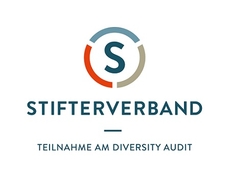Januar 21, 2021: Understanding democracy - internationally and nationally
The initiative Weltoffenes Magdeburg (Open-minded Magdeburg), an alliance of civil society actors who are jointly committed to cosmopolitanism and tolerance, organised action days under the motto "One city for all".
Together with the Sustainability Office and other colleagues at the university, the Graduate Academy has organised an online discussion on the topic "Understanding democracy - internationally and nationally".
- Democracy for all - how to get involved directly?
- Is democracy in danger in times of "alternative facts"?
- What are our possibilities as a university to counter "fake news" and conspiracy theories?
Synopsis
In great openness and appreciation, about 25 people discussed the topic in a multifaceted way in about 1 ½ hours.
The opening statements by five people from Mexico, Ukraine and Germany already had one common message: the participation of as many people as possible from all population groups is very important for the functioning of democracy. Especially some international participants described the enormous dangers that arise when politicians distance themselves too far from the general population. Critical thinking should be part of the education at university, especially in teacher training, so that it is also taught more in schools.
With regard to universities and research institutions, many emphasized how important it is to make scientific findings accessible to "everyone" in an understandable form. Especially in times of uncertainty due to the pandemic, the voices from the scientific community are seen as very important and valuable. However, it is very important to clearly distinguish where scientific knowledge ends and political opinion or classification begins. Scientists are credible when they also point out uncertainties, explain further developments in knowledge and correct outdated views.
Science is already communicated in a generally understandable way in many ways; numerous podcasts, videos and social media contributions bear witness to this, as do events such as the "Long Night of Science" or the offers of "Studying over the age of 50".
However, one wish remains open, which was articulated by various participants: the offers from science are usually constructed as a "one-way street". There are plenty of opportunities to get information, but very few opportunities to engage in discussion and ask questions. One participant put it succinctly, "Why is it that "Studying over the age of 50" only has lectures, but no seminars?"
It is precisely at this point that the university can find a point of contact and further develop the proven diverse offerings (e.g., science in the town hall) or use potentials of already existing infrastructure (e.g., in:takt) and new formats to enable interaction between OVGU and the city.
We would like to thank all participants of the discussion and look forward to continuing our dialogue with you.







